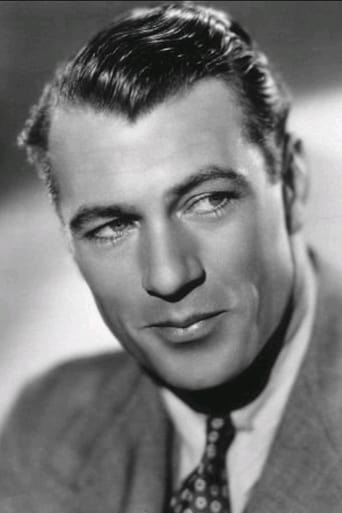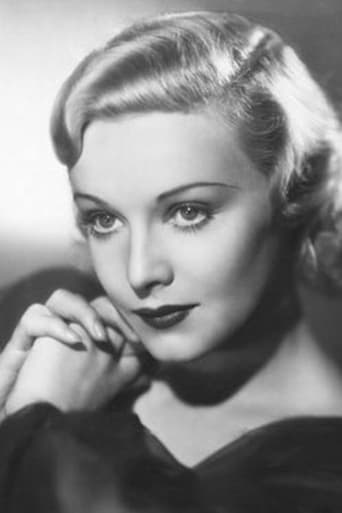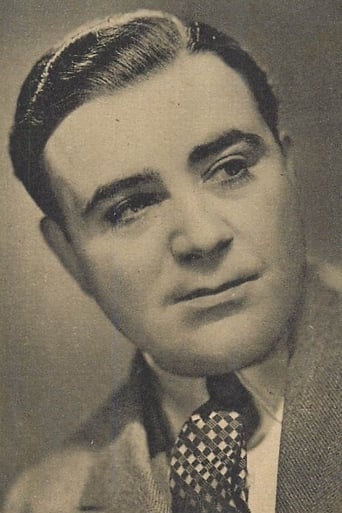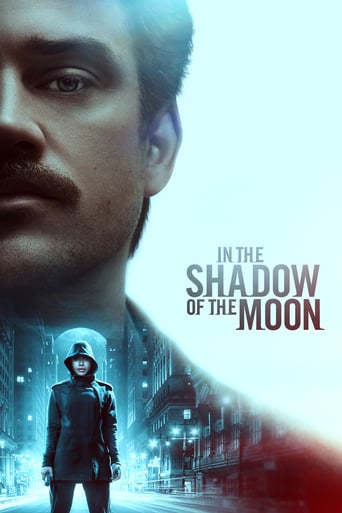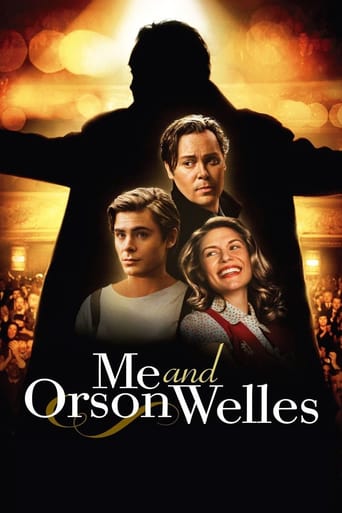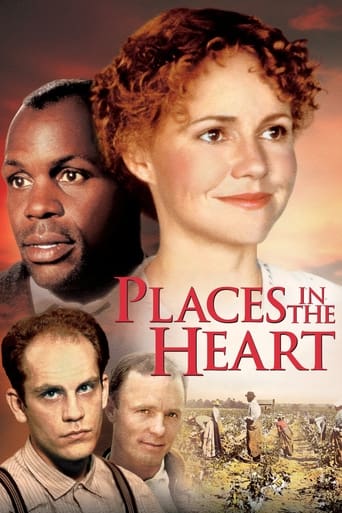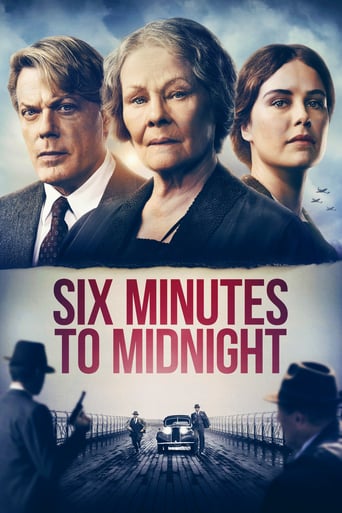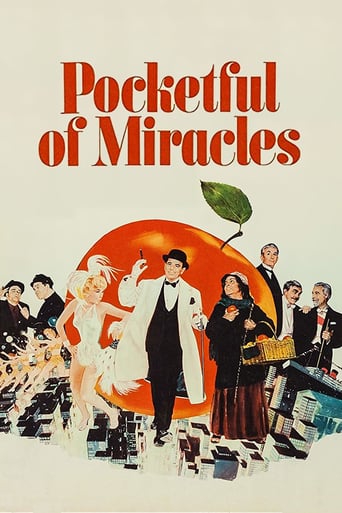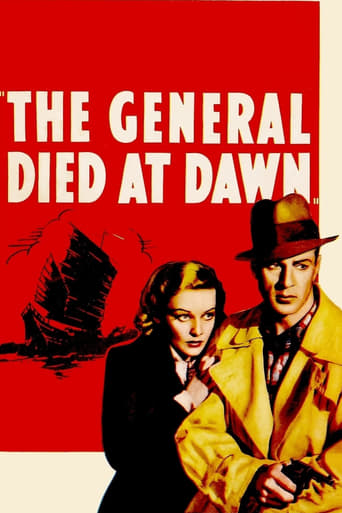
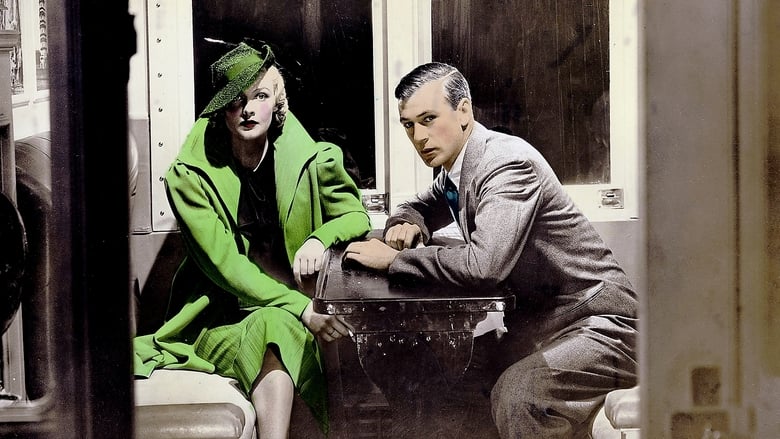
The General Died at Dawn (1936)
China, 1930s, during the ravaging civil war. General Pen entrusts O'Hara, an intrepid American adventurer, with the mission of providing a large sum of money to Mr. Wu with the task of buying weapons in Shanghai to help end General Yang's tyranny that keeps an entire province under his ruthless iron boot.
Watch Trailer
Cast
Similar titles
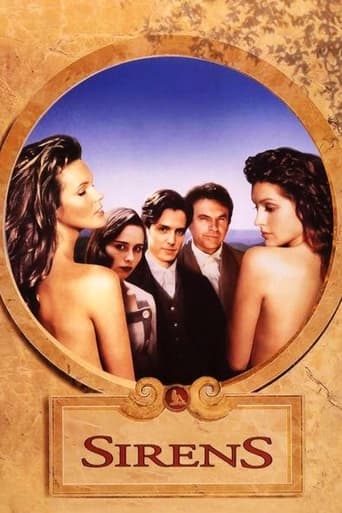
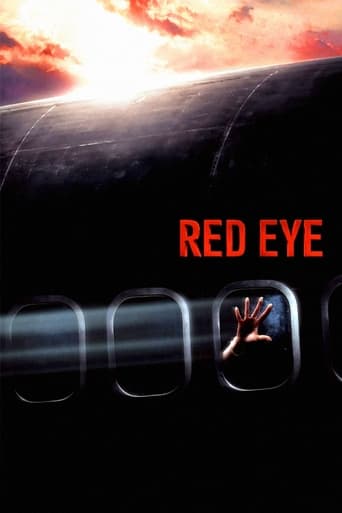
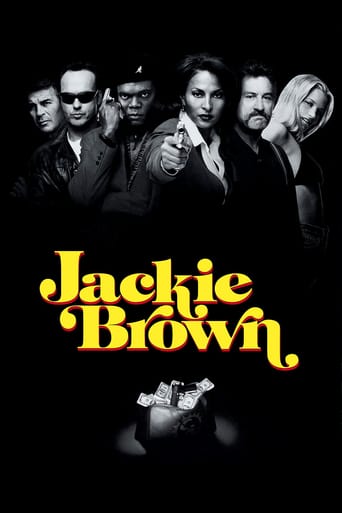
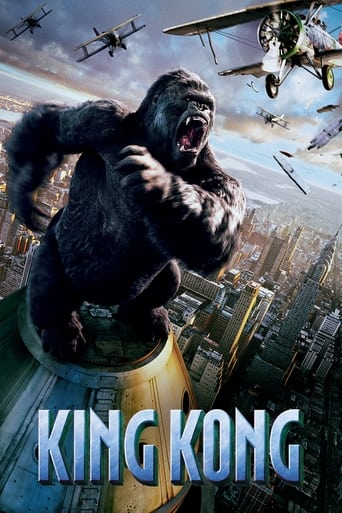
Reviews
Just perfect...
I enjoyed watching this film and would recommend other to give it a try , (as I am) but this movie, although enjoyable to watch due to the better than average acting fails to add anything new to its storyline that is all too familiar to these types of movies.
It is an exhilarating, distressing, funny and profound film, with one of the more memorable film scores in years,
The thing I enjoyed most about the film is the fact that it doesn't shy away from being a super-sized-cliche;
Copyright 4 September 1936 by Paramount Pictures, Inc. New York opening at the Paramount: 2 September 1936. Australian release: 19 December 1936. Sydney opening at the Prince Edward: 19 December 1936 (ran 5 weeks). 98 minutes.SYNOPSIS: The Northern districts of China are being terrorized by the ruthless Chinese bandit chief General Yang. He and his twelve aides hope one day to rule the twelve provinces and subjugate China's millions. O'Hara, an American soldier of fortune, sides with the suppressed peasants, accepting the job of carrying a large sum of money to Shanghai to buy guns for their defense. He is to go to Pengwa, then fly to Shanghai where he is to meet with the loyal Mr Wu and Mr Chen, who are in contact with an American gun-runner named Brighton... Oxford, General Yang's chief aide, makes an attempt on O'Hara's life at Pengwa, but fails. He enlists the services of a cowardly American, Peter Perrie, to help him. Perrie plays on the sympathy of his daughter Judy, inducing her to lure O'Hara aboard a train. NOTES: Number 5 at Australian ticket windows for 1937. Tamiroff was nominated for a prestigious Hollywood award for Best Supporting Actor, losing to Walter Brennan in "Come and Get It". Milner's Cinematography was also Award-nominated, but lost out to Tony Gaudio's "Anthony Adverse". Also losing out were Boris Morros and Werner Janssen, defeated by Korngold's "Anthony Adverse" for Best Score. VIEWERS' GUIDE: Adults.COMMENT: A visual feast created by a master of the cinema, "The General Died at Dawn" is one of the most stylishly accomplished, pictorially exciting films of the 1930's. However, the story is not just an excuse for dazzling set-pieces. It provides wonderful opportunities for the players to shine in well-honed, highly memorable roles. When you think of the dozens of great performances delivered over the years by Akim Tamiroff, for instance, it would normally be a daunting task to select a single portrait that transcends many magnificent others. But fortunately the actor lent his talents to the title role of this movie — which makes selecting the ultimate front-runner easy!The same observation could be applied with equal veracity to other players, such as Porter Hall, William Frawley and J. M. Kerrigan. As for Cooper and Carroll, they make the perfect screen couple!Realized on a no-expense-spared budget, with stunningly imaginative sets, engrossing atmospheric photography, bizarrely off-beat editing, and a weirdly appealing music score, The General Died at Dawn provides thrillingly exotic entertainment in its every powerfully composed frame, its every brilliant stratagem of camera movement, its every breathtakingly novel cut, juxtaposition and dissolve.Formerly available on an excellent Universal DVD.
Did you ever come in late to a movie and miss the beginning? You have to try hard to concentrate and catch up, all the while feeling off-balance and wondering how much you missed. That's the way this picture starts off, and I spent some time trying to 'fit in' to the plot. But this film's plot moves at break-neck speed and made me think it is an editing flaw.Having recovered, I found the story completely original and refreshing (can't think of too many Chinese Civil War flicks!). I also found a lack of tension - what's the opposite of nerve-wracking? - as there is no sense of urgency to the proceedings. The principals were just fine; Gary Cooper, Madeleine Carroll and Akim Tamiroff, and special mention must be made of Philip Ahn, who was the personification of evil Japanese military in many WWII pictures.It is worth viewing but is a minor entry in the Gary Cooper canon. I liked it and recommend it but I plan to watch it again soon because I think it is one of those pictures in which some subtlety is overlooked in only one viewing.
Made the same year as DESIRE, THE GENERAL DIED AT DAWN is closer to the norm of Gary Cooper's film image. Rather than the charm and humor of Borzage and Lubitsch's film, Lewis Milestone's movie concentrated on the straight and honest decent American that Coop played in westerns and adventure films. Here he is on a mission to buy weapons for the peasantry fighting one of the warlords who overran China between 1911 and 1931, when Japanese aggression became a centralizing force in uniting Chinese (except for Kuomintang v. Communists for awhile longer). The General here is Wang (Akim Tamiroff, at his most subtly threatening). He is aware that there is a scheme to arm his enemies, and he is making all efforts to scotch it by kidnapping the gun dealer (William Frawley - as said elsewhere on this thread in a performance that unfortunately mirrors his frequently mean drunk self), and finding the man who is trying to buy the weapons. Cooper shows early his "boy scout" honor by illustrating (to Russell Hicks, a glib, cynical traveler) what Wang's rule means to the peasants. He asks for a match, and Hicks says he hasn't any. Cooper knocks him down, and calmly asks for the match again. A furious Hicks repeats he said he has no matches. Cooper says he understands that, but what he just did to Hicks about matches is exactly what Wang does to the peasants for food, possessions, whatever he wants, and he treats them far worse than just knocking them down if they refuse him.Madeleine Carroll is the anti-heroine, the daughter of Porter Hall (a year away from killing Cooper as Jack McCall in THE PLAINSMAN). As sneaky as ever he encourages her to help preoccupy Cooper while Hall gets the money from him. Cooper does realize (slightly late) what's going on, and he does confront Carroll (who is not happy at her actions). Eventually there is a confrontation with Hall as well - which ends badly.Hall is not the worst figure in the film. Besides Tamiroff and Frawley there is also J.M.Kerrigan as "Leach" (an apt name), who is a blackmailing scoundrel only out for his own benefit. Like the other villains in the film he does a first rate job. So does Dudley Digges as Mr. Wu, the restaurant owner who is also the contact man for Cooper when he is supposed to get Frawley's weapons. Notice his comment about the pleasure of a particular Chinese dish. Also notice (briefly) the appearance of John O'Hara, the novelist, as a reporter early in the film. He is closer to "Samara" than to "Gibbsville" in this movie.The film's threads all come together in a mass confrontation on Wang's junk. The conclusion is one that only makes sense if you realize what an egomaniac Tamiroff's character really is.I like this adventure film, which is a worthy continuation of the story of China's fragmentation in those years to Von Sternberg's SHANGHAI EXPRESS. Definitely a film to watch and enjoy.
There are better films than The General Died at Dawn; however, there are few films that make so much out of so little. The story itself is little more than fond manipulation of Asian stereotypes. Yet Lewis Milestone takes the material and in his hands, it becomes a cinematic jewel. Watch how the round features of a minor Chinese actor becomes a doorknob and then a billiard ball. Note how multi-imaging creates a visual record of the story being told. Watch how the stylized performances of Cooper and Carroll are used as foil for the larger-than-life storyline.Sure, there are better films than this. But there are very few better entertainments - a concept that Hollywood lost years ago and which is only now infiltrating the thick skulls of TV land.
